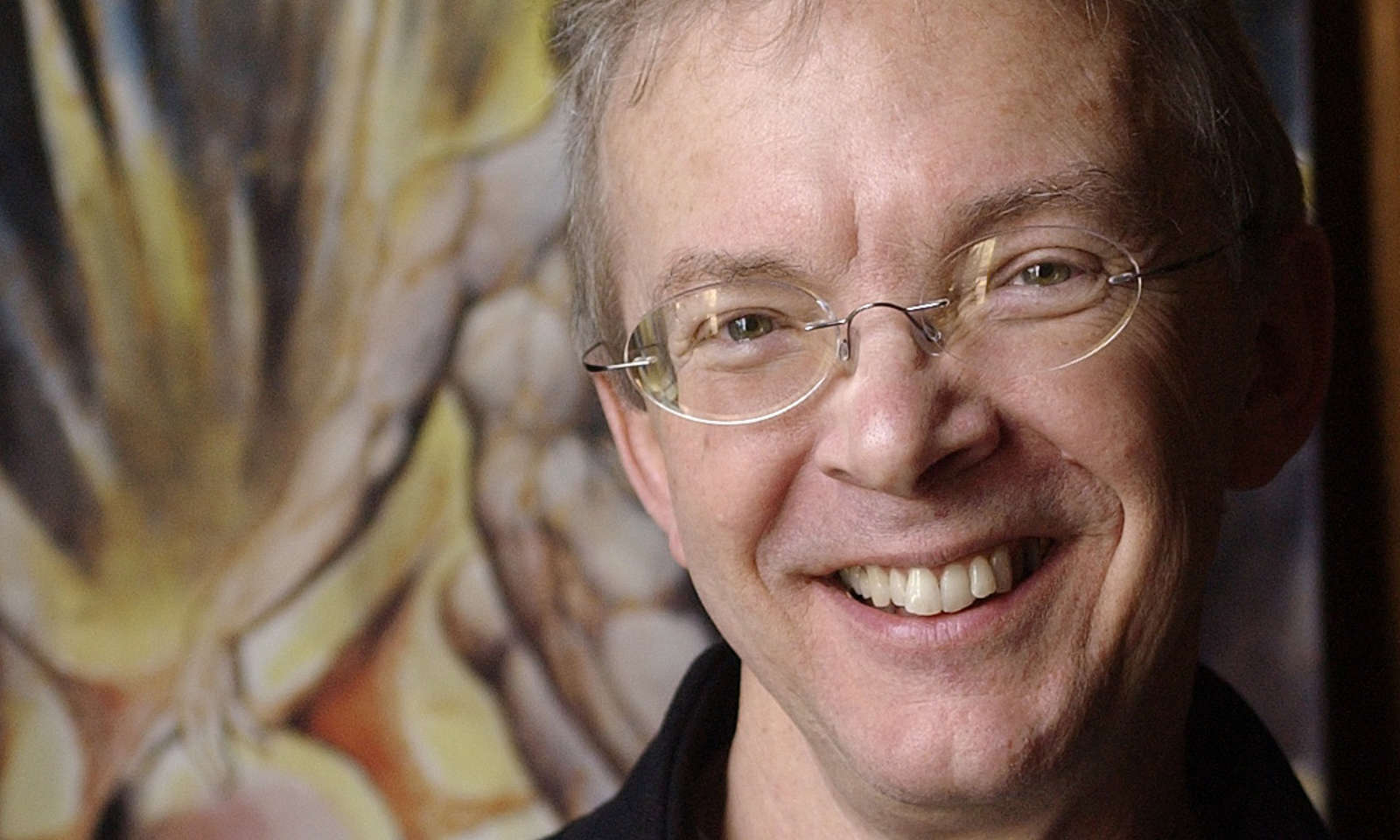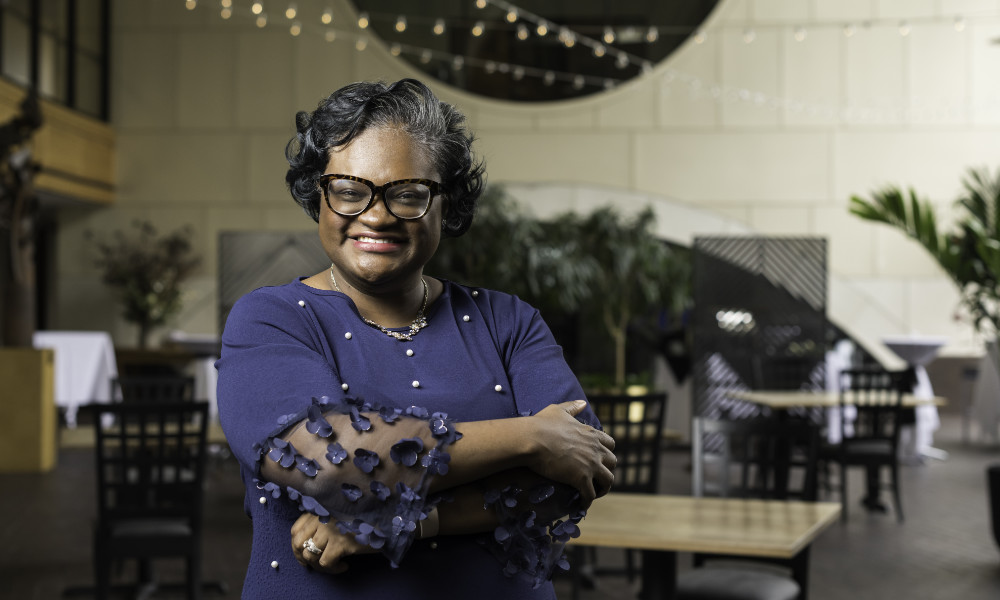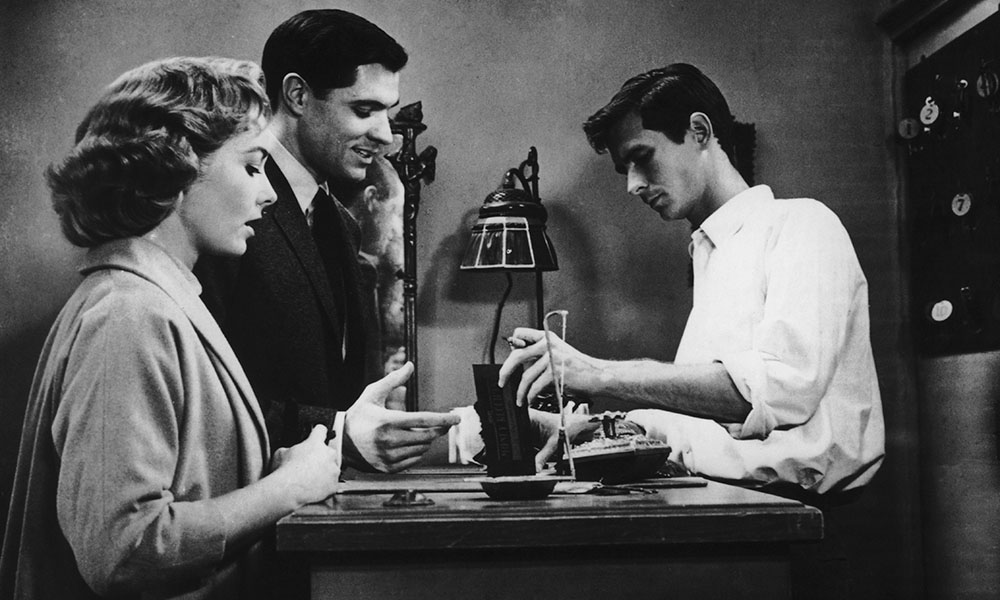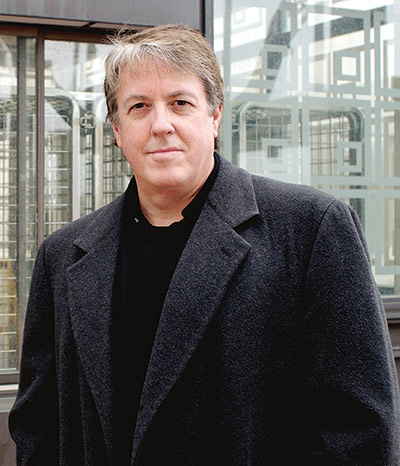
Emmy Award-winning composer and conductor Mark Watters has composed musical scores for motion pictures, television, DVD, video games, even the Olympics. In April, he was named the inaugural director of the Eastman School of Music’s Beal Institute for Film Music and Contemporary Media, and he’s setting his sights on preparing students for new opportunities in a rapidly changing field.
How would you describe the purpose and goals of the Beal Institute?
The purpose of the institute is to expand our relationships with other schools in the area that have a film or video curriculum. The idea is to hook their filmmakers up with our film composers to complete the education process. It’s one thing to compose themes and talk theory, but it’s another thing to start a collaboration with a filmmaker to complete a score under the same circumstances one would produce a score in the real, professional world. That can’t be accomplished until you’re working on somebody’s film.
That sounds exciting for the art itself, and also for the marketability of the graduates who will have the experience of working with filmmakers in creating these compositions.
I certainly hope so. There’s a growing number of media composition departments across the country, and every year, hundreds of people coming out of colleges with degrees in media composition. Certainly Eastman has a sterling reputation for producing great musicians and great composers, but we felt like we had to have something extra at Eastman.
What are your aspirations for the institute?
We hope the Beal Institute can become well known as a center not only for study and archiving, but for presentation. There isn’t a great film music festival in this country, and there really should be. There are several in Europe, and some in Asia, and most of them feature American film composers. But there is not one in this country, and there’s no better place to have one than Rochester. I don’t mean a series of concerts. I mean workshops, and panel discussions, retrospectives— all of those things that I don’t think would find a way to grow in a large metropolitan film city such as Los Angeles or New York. There are too many things going on there. The opportunity for doing it in Rochester would, I think, make a lot of sense. Just to bring awareness to this area, to this school, to this curriculum—that’s what the Beal Institute hopes to do.
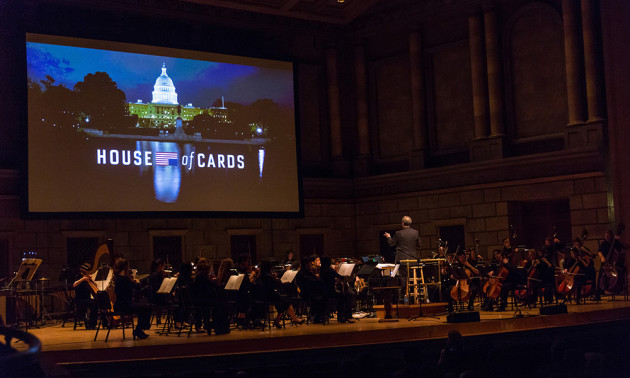
Composers, included you, have created scores for video games, as well as film. How has the changing media landscape widened the possibilities for musicians in the industry, and perhaps changed the nature of their work?
The media industry is constantly changing not only how we create and produce the product, but also how it’s disseminated to our audiences. Streaming capabilities have exploded, not only with music, but also with TV and film. Video games are the fastest growing media product right now. Virtual reality is going to continue to develop and expand. We’re going see it applied not just in video games, but in television and film.
Our entertainment world moves so quickly. And this is a challenge in educating professional musicians. Universities, historically, have not been good at changing or keeping up with the technology in many areas, and media composition is very much about what’s popular now. It’s important for me, as director of the Beal Institute, to constantly be connected to that. What are the new trends? What are the new technologies? The leadership at Eastman has been overwhelmingly supportive of what we hope to do here. They have invested a great deal of money in new equipment, and the students coming here are going to have a great opportunity to see first hand what’s happening in the business.
That’s a great way to segue into talking about the Light and Sound Interactive conference, held in Rochester earlier in September. What was your role at the conference? Can you talk to me a little bit about what you’re going to be doing at the light and sound conference and how you see that connection between art and sound, artistry, technology, whatever?
I delivered a presentation about musical storytelling and the effects sound vibrations can have on our emotional psyche. There’s a mystery—and I suppose this is what keeps me so excited about doing what I do—about how sound vibrations affect us. We attempt to harness that quality when we are creating a score for a film project, or a TV project, or a video game. That’s how we know we are telling a story through music and an accompanying image in the “right” way. I presented examples of music working with images, and music working against images. And I showed how, just by changing the music, your whole perception of what you’re seeing changes.
How has the technology of composing changed your own work?
It’s changed it completely. When I first started, in the early 1980s, electronic synthesizers were just becoming commercially available, and just starting to have an impact on media composition. But it wasn’t until advances in computer technology such as MIDI that we could really utilize it in a compositional way. We could store it in a computer, we created a language that allowed us to build compositions within the computer, and it allowed the filmmaker to continue to hear demos much more easily. In fact, demos and queues were unheard of before the 1990s, and it has progressed to where you don’t just demo a couple of key scenes, but it’s now standard practice to demo everything. It took some composers awhile to adjust to that extra layer of work. We are serving the filmmaker, and if the filmmaker has the opportunity to complete his or her vision, then it’s good for all of us. The ability to have a filmmaker step in and help the composer complete that process was not possible 20 years ago.

